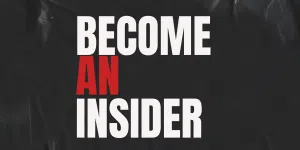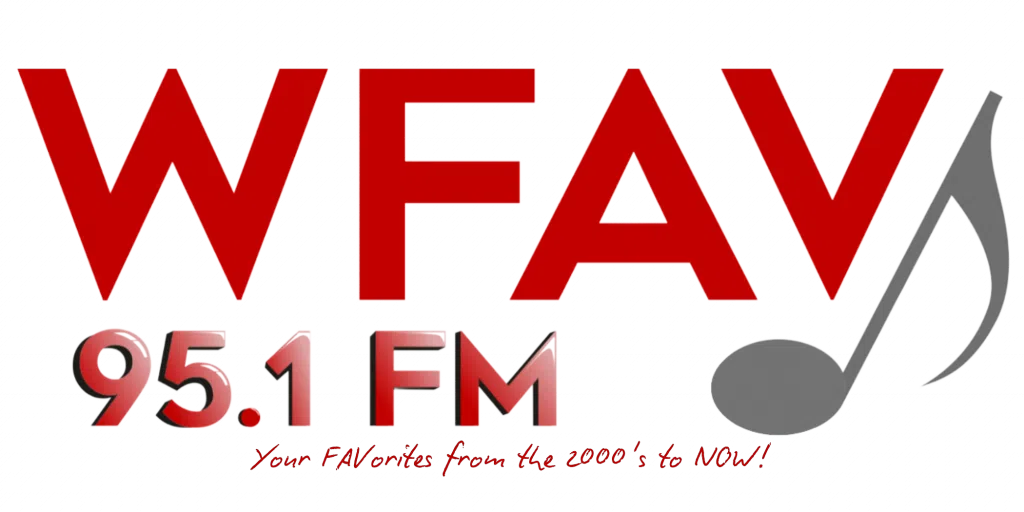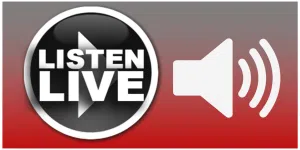LAS VEGAS – As the sky buzzed on a late October morning with a small swarm of helicopters ferrying many of the biggest artists in dance music in and out of the Las Vegas Speedway for the Electric Daisy Carnival, Pasquale Rotella held court in a luxe trailer, a sense of relief washing over him.
Rotella is the founder and CEO of Insomniac, and EDC — a three-day festival that has drawn 400,000 to the Vegas desert in the past — is the crown jewel of his multi-million-dollar global empire. This year’s event, a 25-anniversary celebration and North America’s biggest festival of the year, had been postponed twice due to the pandemic, drawing criticism from ticket holders who had booked hotel rooms and planes. Insomniac has a fans-first attitude that includes calling those ticket holders “headliners,” so the criticism weighed heavily. So did the staff furloughs and layoffs that hit the 28-year-old company in 2020.
But now, finally, EDC was pumping bass and vibes into the chilly desert air. Just outside Rotella’s compound, some 25,000 fans, many of whom held onto their tickets for almost two years, were camped in neatly arranged FEMA-like tents. When Rotella roamed the campsite in his custom PLUR (Peace Love Unity Respect) golf cart adorned with faux flowers, hundreds of ravers approached him, tears in their eyes, effusing their appreciation that the Los Angeles native had managed to finally get the festival he founded back up. And he did it full blast, with some 475,000 attendees over three days and more than 200 DJs spinning dance music at an event billed as the largest of its kind in the world.
“There’s people that need this in their lives in a big way,” the ever-mellow Rotella, casual in shorts and a purple tie-died Space Jam hoodie, told Billboard from his small private camp, outfitted with a trailer, beer-pong table and a small dancefloor that lit up, Saturday Night Fever-style. “It helps them manage their anxiety or whatever they’re struggling with. The personal messages, the thoughts of suicide, people that were not happy…. The amount of stories that I would get and we get on other channels, I mean, it was a lot.”
The 47-year-old Rotella has steered the ever-sprawling EDC through scandal, heartbreak and dizzying success without ever relinquishing primary control over the festival’s look, vision and focus on fans — not even after he sold a 50.1% interest to Live Nation in 2013 for $44.7 million, giving Insomniac a valuation of $89.4 million. But his push-the-envelope style – which stems from his days in LA’s ecstasy-fueled underground 90s rave scene – nearly met its match in the global pandemic.
Other festival promoters began cancelling or rescheduling their events after Live Nation and AEG’s March 12, 2020, announcement that they were pulling their tours from the road. Rotella, though, waited three more weeks to postpone his Las Vegas festival. In May 2020, Insomniac confirmed reports that it had furloughed 90 employees, more than 50% of its staff. Then this April, angry ticket holders slammed Rotella for prematurely declaring that the festival was back on before he had ironed out COVID-19 restrictions with local officials.
Electric Daisy Carnival’s 25th anniversary came as major festivals were reporting mounting financial strain, with Belgium’s Tomorrowland — another massive three-day festival — saying it will likely lose about 25 million euros ($29 million) from two lost years of live events. EDC’s chances for profitability in 2021 don’t seem much better. The costs of the postponements as well as the financial investment to stage EDC Las Vegas make short-term profitability nearly impossible, industry sources tell Billboard.
But the Insomniac chief says he’s interested in more than just money — and he said he’s considering buying other events around the world.

.
“Rave Together, But Apart”
Live Nation chief executive Michael Rapino had one rule for promoters anxious to return post-pandemic: don’t do anything stupid.
The head of the world’s largest concert company had a vested interest in ushering the safe return of concerts, but he didn’t want to see any of the hundreds of promoters under his management do anything that could send that safe return off track or draw criticism from the press. While this rule applied to everyone, many within Live Nation say Rotella is given more leeway to take risks than LN’s other festival partnerships, which include Electric Forest in Rothbury Michigan and the jam-centric Okeechobee festival near Orlando.
When the pandemic forced the cancellation of his events, Rotella kept pushing, staging virtual raves from the company’s LA headquarters and drive-in events. On Instagram, Rotella adopted the slogan “Rave Together, But Apart” as he tried to rally supporters to get behind his virtual rave-a-thons, while pitching skeptical Live Nation, in early summer 2020, on a way to put on EDC Las Vegas that October. His plan was to have 150,000 attendees complete a COVID-19 test at home and verify they were virus-free through a smart phone app before taking a second test at the festival site. Ticketmaster even mocked up sketches of how the app would work as it weighed its own plan to create a vaccine passport for concert goers.
Neither idea panned out, and two months before the event Rotella pulled the plug. “Unfortunately, we just learned that the medical advances necessary to pull this off will not be ready in time,” Rotella wrote in a message posted to EDC’s Instagram page.

.
Eight months later he would try for a spring 2021 festival. This time, Rotella said he would protect fans by running the venue at half-capacity and stretching the event out over two weekends. His safety plan, as submitted to the state of Nevada, included a “clean zone” for vaccinated and COVID-free attendees using a yet-to-be-created health pass mobile app and COVID-19-sniffing dogs. On April 8, Rotella declared victory, telling fans on Instagram to “book your flights, hotels & shuttles” for EDC’s return May 21-23.
Again, it was not to be. Local officials worried that even at half-capacity EDC was still too big for Clark County, Nevada, and mandated that at least 60% of Clark County residents had to be vaccinated. On April 20, 12 days after saying the event was on, Rotella broke the news to fans that it wasn’t feasible.
“Unfortunately, the rate at which people get vaccinated before EDC is out of our control,” he wrote. Fans were less forgiving this time. On social media, Rotella was blamed for jumping the gun.
Six months later, he remained unapologetic. “I wouldn’t change a thing,” he said from his trailer. “I know that we made it so that events could happen sooner in the United States. We were pushing so hard behind the scenes.”
Rotella said Insomniac was “talking to everyone, from governors to mayors to the health department,” to try to figure out how to get approval for EDC Las Vegas. “We were pushing hard and [going] everywhere we could to get answers to how to do this safely,” he says.
Unlocking Pasquale’s Imagination

.
Sitting in a mostly soundproofed building just behind the animated lights of EDC’s Pixel Forest bar, Justin Spagg, vp of festival operations, said Rotella wants every Electric Daisy Carnival to be a sort of Groundhog Day that replays his early rave experiences in Los Angeles. “He pulls so much of what he does from like 20 years ago,” Spagg said, “but always thinking, ‘How can I do that better?’”
When Spagg joined the company in 2008, Insomniac employed three staff members, he said. But Rotella and his team soon built EDC into the biggest dance event on the West Coast.
Then in 2010, Rotella’s empire almost came crashing down when dozens of fans without tickets jumped a fence at the Los Angeles Coliseum and scuffled violently with security guards. Among them was 15-year-old Sasha Rodriguez, who died of an ecstasy overdose.
The high-profile death kicked off a larger investigation and Rotella was eventually indicted by a grand jury for allegedly participating in a kick-back scheme with Coliseum management. Four years later, the Los Angeles District Attorney’s office dropped the charges and admitted to prosecutorial misconduct within its public integrity unit. But by then Rotella had already moved the festival to Las Vegas. The first EDC there, in 2011, drew 230,000 attendees over three days.
This was a period of growth and ongoing challenges. There were two overdose deaths at EDC in 2012 and two more in 2014. And there were a handful of lawsuits (unsuccessful) and a business dispute over a joint venture with New Orleans promoter James “Disco Donnie” Estopinal (a feud that’s since been worked out).
Today, Rotella helms the world’s largest dance festival company. He has exported his flagship Electric Daisy Carnival to Brazil, India, South Korea, China, Japan, Mexico, the UK and Puerto Rico, with plans to expand to Portugal next year. In 2019, Insomniac produced 19 festivals and over 100 club events and concerts, making Rotella one of the most powerful people in the dance music world.
Booking this year’s Las Vegas event was a huge challenge for Meelo Solis, vp concerts and festivals, and a childhood friend of Rotella’s from Los Angeles.
The Insomniac team had to put together a “visa team” to navigate the tapestry of global COVID-19 restrictions that affected DJs, décor vendors and other staffers. “It was a pain in the ass, it was a nightmare,” said Solis.
No one was ultimately denied entry visas, though some artists, like David Guetta, couldn’t make EDC Las Vegas because of scheduling conflicts, according to Rotella. But most of the lineup is exactly as it had been booked in 2020. “We did debate creating a blank canvas and starting from scratch,” said Solis. But “people were so excited to play in 2020.”

.
Insomniac considers the attendees its headliners, and this year’s crowd arrived at a festival site occupying more of the Speedway than ever before. In a move designed to improve traffic flow at the normally packed event, the speedway modified the space — mostly by removing trailers — so that Insomniac could use the entire infield of the track for the festival footprint — yielding a 16% increase in “heavily trafficked areas,” according to a safety plan the company submitted to the state of Nevada.
Nearly every element of the festival grounds, from the brightly lit Tesla coils dotting EDC’s main fire road Electric Avenue to the Pixel Forest bar with flashing eight-bit animations was created by a team of artists, engineers and production professionals from Amsterdam design firm Leisure Expert Group (LEG), who have been tasked with bringing Rotella’s vision to life the past seven years.
“It’s our job to try to dig it out of Pasquale’s head and figure out what he wants,” Alyxzander Bear, Insomniac’s executive director of production and a former member of the Marine Corp., said while driving a golf cart through the festival grounds. For months, dozens of LEG designers sit with Rotella and listen to him describe his ideas for new art pieces, stage designs, pop-up activations and even new roads. “It’s always hard to decipher,” Bear said. “If we build it, and he likes it, we’re golden. If he doesn’t, we try it again.”
Much of the elaborate art and electronic pieces are fabricated in Russia and Belgium and shipped to U.S. Insomniac has its own production facility in Las Vegas for smaller items it can quickly build stateside, and a 200,000-square-foot warehouse for storage. The layout and major production elements of the festival are created in VR, Spagg said, allowing Rotella and others to virtually walk the grounds and make changes on the fly.
Rotella acknowledges he has a habit of making last-minute changes. “I’m a little OCD about it, for sure,” he said. “I’ve moved things after they were set up that were kind of expensive, right? Tore down and moved.”
This year festival organizers were forced to finish some stages by working on Facetime with overseas installers and fabricators because of pandemic travel restrictions, Spagg said.

.
Filling the Speedway this year were eight stages, a dozen carnival rides and hundreds of art pieces, spread out over a grid separating areas like Kinetic Field (home to the festival’s largest stage, at 440-feet wide), the Mad Max-meets-Burning Man Nomads Land battle ground and two massive, tented music stages dedicated to trance, techno and house music. This year’s Kinetic stage featured a crystalline landscape with a giant, severe-looking owl directly behind the DJ with female buddhas encased in glass tubes on each end.
“We design it as a pop-up theme park,” Spagg said of the event’s layout, which feels more like a neon Disneyland than an event like Coachella or Lollapalooza. “One thing that sets us apart from other festivals,” said Bear, is Pasquale’s “emphasis on the enjoyment of the fans.”
That dedication to imprinting Rotella’s vision on its stages has meant that EDC is among a few major dance festivals where artists have little opportunity for bespoke production. Some artists have found that limiting: Swedish House Mafia noted to Billboard in June that the group – which recently announced a 44-city world tour in 2022 — was no longer interested in being booked for EDM festivals where the band cannot modify the stage design or other production elements.
“I’m not going to do this,” Steve Angello said. “I’ve known those [Insomniac] guys for 20 years and hats off, they’re incredible. It’s just not my vibe. I would rather play a warehouse for 3,000 people with three lasers.”
Insomniac execs have heard the criticism before. “It’s tough,” Spagg said. “At the end of the day the artists do matter.” There just isn’t much room for production beyond EDC’s plug-and-play approach. “Some have their creative image and choose not to fold into that,” Spagg said. “And that’s OK.”
The Culture Forges Ahead

.
Even with the dance-music bubble bursting over the past few years, Rotella’s company is primed to become an even bigger global force.
The Insomniac chief said he is in active discussions with other promoters around the world about partnerships and acquisitions.
“We have a lot of conversations going,” he said. “We’ll have some announcements soon…We’re talking to everyone. I’ll take any phone call. I’ll help people even if we’re not acquiring them —if we can support them.”
Rotella said he looks for business partners with a similar background and approach to business, telling Billboard in October 2020: “A goal of mine has always been to work with the people that are essentially cut from the same cloth and have the passion with the roots to the culture.”
Nevertheless, he insisted Live Nation puts no pressure on him to continue to expand Insomniac. “I could just do EDC once a year and they would be straight,” he said. “If we were making major mistakes, I would expect – I would want them – to help me do better.”
Insomniac did not disclose to Billboard how many tickets it sold for Electric Daisy Carnival, but in a sign of lower-than-expected sales, a week before the festival Insomniac launched its own RNBW cannabis brand and offered EDC fans a free general admission ticket for every quarter ounce they purchased at dispensaries in Nevada and California. (According to RNBW’s website, a quarter ounce cost $100. GA three-day passes for EDC Las Vegas cost $416 including fees.)
Fans this year also had a third, more affordable option – attend EDC on the Roblox metaverse. Insomniac is the first promoter to stage a festival in the metaverse for the popular gaming brand, featuring the same stages as the real-life EDC, with the music changing as attendees move from stage-to-stage.
Since Electric Daisy Carnival ended early in the morning on Oct. 25, Rotella has staged eight more festivals, including a well-attended EDC Orlando, the all-trance Dreamstate in San Bernardino and Holy Ship! Wrecked in Cancun. While Holy Ship! was sold out and other events have been well attended, Rotella suffered his biggest post-pandemic miss earlier when a UFO-themed New Year’s Eve camping festival in Florida was relocated to an amphitheater without camping. The reason was abysmal ticket sales – Insomniac only sold about 1,800 tickets for an event at a site capable of hosting 20,000 fans, says a source familiar with the cancellation. Insomniac took the mistake in stride, blaming the move on “human staffing issues” and “Earth logistics” — a sign that Rotella is rarely caught taking himself too seriously.
Even during his pinnacle moment on the second night of EDC Las Vegas, when hundreds of synchronized sky-writing drones took to the sky to accompany a massive fireworks display to celebrate “EDC 25 years,” Rotella made an appearance on a VIP-filled viewing deck dressed in an outfit that looked like it had just been won on EDC’s midway – a jean jacket poncho made from different colored swaths of denim covered in ironed-on happy face patches, a pair of loose fitting overalls and a plush pink and orange furry crown that sat on his head like a throw pillow with a hole cut in the middle of it.
It seemed both ridiculous and fitting for a man who has made his fortune throwing dance parties for fans less than half his age. “My mind is telling me we should do EDCLV twice a year,” he said on Instagram a day after the festival, “but my body is still on the fence.”

.






